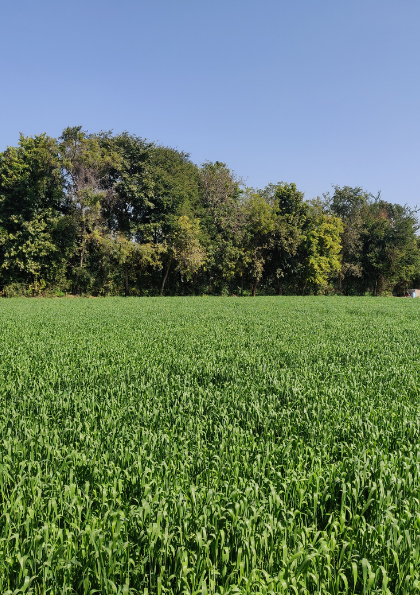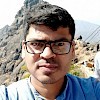
Image Credit: Bhishma Trivedi
As a student of economic development, I often work with numbers. Sometimes, these are numbers from a long time ago, such as the village statistics collected as part of the 1871/72 census of British India. For my dissertation, I have used these data to study village society in the nineteenth century, and how things have changed in India’s villages since then. At other times, I work with data that represent contemporary realities, such as data collected as part of the implementation of rural welfare schemes. I have, however, come to realize that those who rely exclusively on numbers may fail to appreciate connections between different social phenomena. Indeed, social scientists often find that some of the most interesting hypotheses emerge serendipitously from unstructured conversations in the field.
I had one such experience during a field trip to a village in Matar taluka (Kheda district, Gujarat) as part of our “Ahmedabad as Gateway to the World” course. My students and I had gone there to investigate the present state of agriculture in this region after reading an article about the social consequences of canal irrigation in the 1970s and 1980s. We were, of course, aware that agricultural incomes had plateaued after the spectacular growth during the Green Revolution years. As expected, we found that present day village youth had little interest in pursuing agriculture, and instead hoped to transition to non-agricultural work. But we also discerned another pattern during our conversations in the village - most households reported having two sons, but only one daughter or none at all. In total, we conducted around eight interviews that day, and not one of the farming households we spoke to had more daughters than sons.
Using some high school probability, my students and I came to the conclusion that such a systematic discrepancy cannot possibly be a matter of chance alone. Later, I asked my students to look up the demographics of about this region in the decennial census. We found that the region had an overall sex ratio of 929 women per 1000 men, and an even worse child sex ratio of 886 girls below 6 years of age for every 1000 boys in that age group. These numbers confirmed our intuition that sex selection of babies continues to be prevalent in this region. Subsequently, my students and I also read an article about the relationship between the agrarian crisis and the falling sex ratio in rural Gujarat. The authors argue that the perceived undesirability of farming as an occupation is not only due to the diminishing profits in agriculture, but also because the paucity of women in rural Gujarat has worsened the marital prospects of young men who take up farming. Meanwhile, in our class discussion, we also took note of the fact that son preference in Indian society is strongly associated with the sense of economic security we attach to a male child. Our field visit to Matar Taluka gave us a little glimpse into these complex relationships between family, community, and occupation in rural Gujarat.
For most of us, the village felt like an alien world that operated by its own rules. And yet, as I noticed some vegetable patches being cultivated for urban markets, I was also reminded of the fact that this world was not so far removed from the world I live in. Indeed, the whole point of the field trip was to emphasise the intimate connections between the city and the countryside, rather than turning the countryside into an object for dispassionate social analysis. How do we connect these different worlds in ways that point to a more hopeful future? That is a question social scientists must grapple with on a continual basis.


